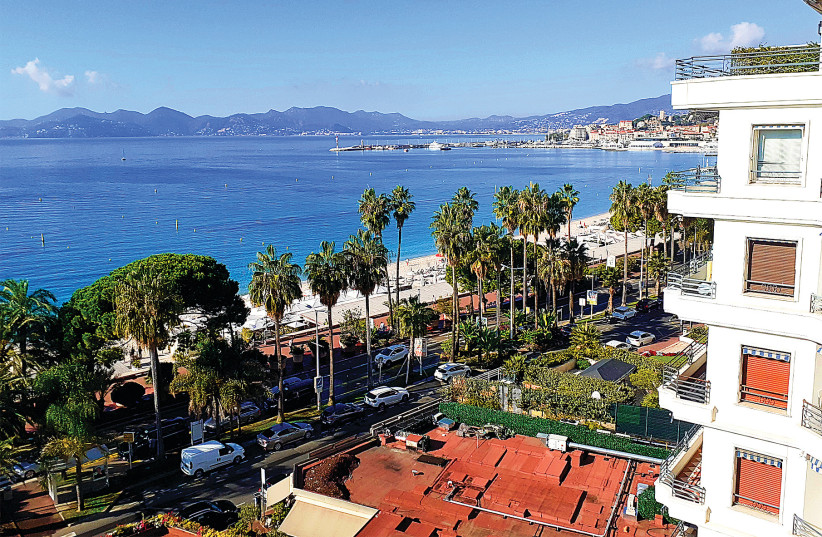(JTA) — The Oscar-winning director Steve McQueen has earned acclaim for his films focused on the struggles of minorities, from “12 Years a Slave” to the BBC’s “Small Axe.”
Now, McQueen — who is British and not Jewish — is releasing a Holocaust-themed documentary titled “Occupied City” that earned rave reviews at film festivals earlier this year.
The first trailer released by A24 on Tuesday shows the film’s unique technique: Footage of modern-day Amsterdam — children playing, weddings, bicyclists, protests during the COVID-19 pandemic — is overlaid with a voiceover describing how the Nazi occupation closed its grip on the city and systematically destroyed its Jewish community in the 1940s. By the end of World War II, at least four in five Dutch Jews had perished.
Running over four hours long, “Occupied City” premiered at the 2023 Cannes Film Festival and will open in theaters on Dec. 25.

McQueen based the film on “Atlas of an Occupied City (Amsterdam 1940-1945),” an illustrated book by his wife, Amsterdam native Bianca Stigter, who wrote the film’s narration. Stigter, also a filmmaker, directed “Three Minutes: A Lengthening,” a 2022 documentary examining three minutes of home footage from 1938, shot in the bustling, predominantly Jewish village of Nasielsk, Poland, months before it was decimated.
Entirely on 35-millimeter
“Occupied City” uses no historical footage, relying entirely on 35-millimeter film of the city shot during the pandemic. The camera follows 130 addresses explored in Stigter’s book, showing the people who live in them today, while an oral narration by Melanie Hyams details the horrors, betrayals, and heroism that unfolded there during World War II.
It’s an eerie contrast. For example, in one apartment where an older woman sways to country music, Hyams explains how a family there was rounded up and sent to a concentration camp.
McQueen said he wished the film was even longer, so it could drift through all the ghosts of the past exposed in Stigter’s book.
“There is a 36-hour version of this,” he said at Cannes in May. “We shot everything in the book. Maybe one day I’ll get a chance to show that.”
